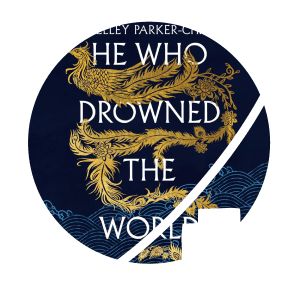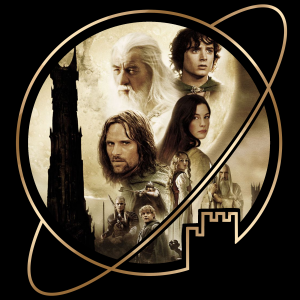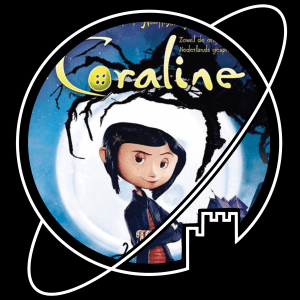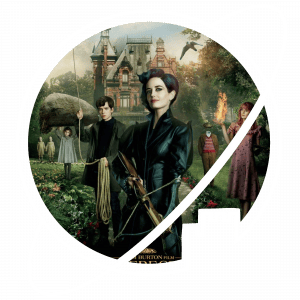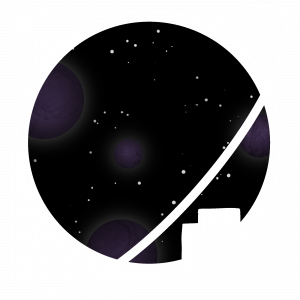Welcome to the Escape Velocity Collection!
We are an opinionated group of friends reviewing all sorts of fantasy and science fiction media. Don’t forget to get to know the curators and visit our curated Collection, where we discuss the stories that never cease to transport us to another world.
Will you escape with us?
LATEST POSTS:
- Boom written by Christopher Paolini
- Published in 2005
- Part 2 of the Inheritance Cycle
After the battle of Farthen Dur, the dwarven city, Eragon and Saphira must travel to the elven city of Ellesmera in the north,where they will be apprenticed to an unexpected master to continue their training as rider and dragon. Meanwhile Nasuada leads the Varden into an uneasy alliance with the scattered independent factions of the land to take the great armies of Galbatorix head on.dangerous adventures that will take him and Saphira and all over the Empire, all the while growing their strength and strengthening their bond.
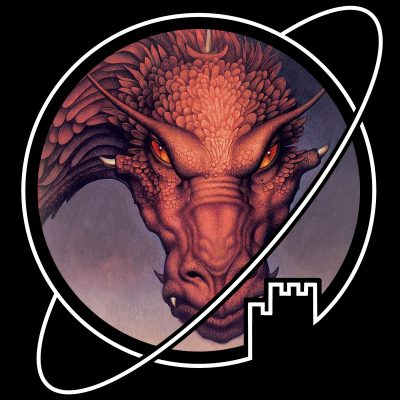

Eldest, the second part in the Inheritance Cycle, is similar to Eragon in many ways: its world, plot and characters are generic and its prose isn’t particularly good. Sadly, I felt like the bad parts stand out more in Eldest, and the good bits are fewer and further between. Where Eragon still feels somewhat fresh – like any fantasy book, it offers a new world to explore, new magic to learn – Eldest feels a bit stale right from the start. Paolini tries and fails to set up a politics-plot with the dwarves, and when Eragon arrives in Ellesmera, Paolini’s age at the time of writing starts to shine through again. Both the life lessons taught by his mentor and Eragon’s love for Arya feel very much like they’re written by a teenager – which, admittedly, they probably are. Roran, Eragon’s adoptive brother, has a plotline of his own that is better written, but feels a bit tacked on, maybe because it was suggested by an editor? The final battle where it all comes together has a decent stand off between Eragon and his nemesis, but I don’t think it’s worth the trouble of reading through the book to get there.
Overall, Eldest merits a two-star rating because it is a functional, comfortable fantasy book and I know that there are people out there that enjoy this simpler take on the fantasy genre – but it is not for me and I wouldn’t generally recommend it either.
Tagged:
- Audio drama produced by Fool & Scholar Productions
- Written by Kaitlin Statz
- Released in 2019-2021
- Starring Siobhan Lumsden, Tanja Milojevic and others
The Bifrost was meant to transport its passengers to a yet-to-be colonised solar system, but when Dr. Nolira Eck wakes up from stasis, the ship’s systems are malfunctioning and the rest of the crew has disappeared. Assisted by the ship’s AI, Nolira fights to survive and to find out what fate has befallen her crewmembers.
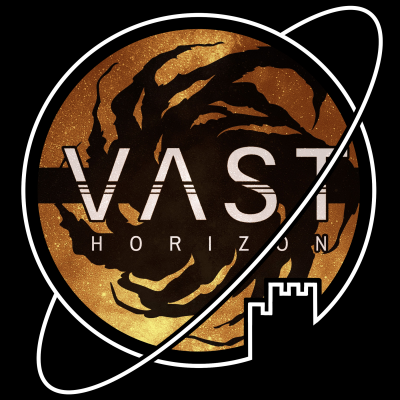

(This review relates to seasons 1 and 2)
VAST Horizon is a very high-quality podcast. The story is very tense and keeps you at the edge of your seat the whole time while listening. Combined with superb voice-acting and very realistic soundscapes, you truly believe you are listening to someone fighting for her life on a spaceship that is falling apart around her. Episode by episode you slowly gather more information about what is going on, and by the time you find out the truth you are fully invested in the characters and their struggles. The podcast raises some pretty intense moral questions, which are brought to life by the complex and interesting characters and their backstories. I can’t wait to find out where the story will go in season three.

(This review relates to season 1)
VAST Horizon is an audiodrama focussing on the classic sci-fi scenario of a lone crewmember that wakes up in a damaged interstellar colony ship, and needs to save themselves and, potentially, the ship or face a harsh and lonely death in the galactic void. The first season of VAST Horizon is (apart from the absolute classic that is Orson Welles’ The War of the Worlds) the first dedicated audiodrama that I listened to, so take that into account when considering my review.
From the very beginning, VAST Horizon manages to set up an immersive soundscape, with great foley and good voice acting. As a result, you are invested in the story right from the start. Aggressive beeps and spoken warnings create an atmosphere of tension that has your heart racing before the story has even properly begun. The interactions between Nolira, our plucky survivor, and Ally, the AI, are fun, but because they are relatively limited as a medium for storytelling, their conversations are interspersed with flashbacks and dreams slowly revealing Nolira’s background and reasons for being on the colony ship in the first place.
The first handful of episodes feel a bit like fetch quests in a simple videogame, seeing the main character move from one place to another in the ship to solve a problem that appears just before the previous episode ended. The story is glued together by the flashbacks, but while the back-and-forth between the present and the flashbacks is a good solution to the limited format, the perspective changes feel a bit forced. The story of the flashbacks is actually the more satisfying one, because while the soundscape of the slowly decaying space ship is really cool, the story is all over the place, seemingly hamstrung by its format. I’m curious to find out whether this is a more common feature of the genre – though the audiodrama is not so different from some full cast audiobooks (like the Themis Files) I have listened to.
Overall, because of the relatively limited time investment for an audiobook (only about 5 hours for the first season at 1.2x speed), it is not particularly difficult to recommend, so if you’re interested in the format I would encourage you to give it a shot. However, I’d expect there to be audiodramas out there with better quality writing – I’ll update this review if I ever listen to one that I feel would be a better introduction to the genre.

(The review relates to seasons 1, 2 and 3)
Alright, season by season. A little warning: I give no spoilers about story-elements, but I do discuss the development of the kind of story that is told.
1: Wow. I have listened to a couple of Fool and Scholar’s audio drama’s, but this one is definitely the best. What an acting job of Siobhan Lumsden for main character dr. Nolira Eck – amazing! The audio design is also great, with a lot of depth when Nolira is climbing through the spaceship and when characters are moving through a room. Another great thing is the inclusion of other native languages than English, which seems to be of importance to more Fool and Scholar Productions – and which I love.
The story gripped me from the start. Although at first sight a relatively unoriginal story about a stranded space passenger, every episode painted a new layer on the characters and story-arch. I was thrown between empathy for the characters and disgust of their actions, but when the gunshot sounded, I literally stood still, waiting, hoping for a sign of life.
2: In the second season, the story moves from morally comprised personal histories and survival to living with the consequences of that history and a mystery to figure out. Although less emotionally gripping than the first season, it expands on the earlier set themes and follows the characters further on their journey. It does get a little talky, less showy (or let heary?). The story is less dynamic and slowly transforms from a survival story to a diplomatic conundrum.
3: The third and last season had me a little disappointed. It was fine, but only because I had gotten to know the characters in previous seasons. It has become a full -fledged political tale with a lot of characters and (therfore) more emotionally distant. There are no flashbacks anymore and character development or plot twists are limited. It felt as if this season was rather resolving the situation than providing fresh story. There was, however, way more technical worldbuilding. Not something I am overly interested in, but I do know some that love that kind of storytelling.
In all, I started in love and ended with a ‘let’s stay friends’, arriving at an average of four stars.
- Book written by David Mitchell
- Published in 2004
- Stand Alone
Cloud Atlas is a collection of six intertwined short stories spanning across different times, settings, genres and styles, sharing themes and references, forming a single tale told through six beginnings and six ends: a pacific explorer, a novice composer, an intrepid journalist, a struggling editor, a factory clone and a survivor of the apocalypse share a single stage in their struggle against the systems of power in their respective times.
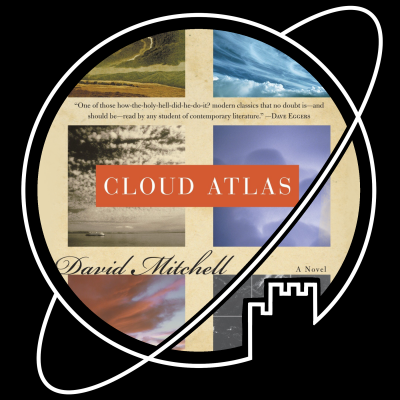

Cloud Atlas is one of those books that I think truly deserves to be called a masterpiece. The six storylines are all written in such different styles and voices that it is almost hard to believe they were written by the same author. And yet, different as they are, they do speak to each other.
All stories share a theme of rebelling against oppression, and through the repetition of this theme throughout different ages and contexts the stories seem to amplify one another. Together with the original settings, complex characters and beautiful language, I found Cloud Atlas to be an extraordinary reading experience.
While each story has its merits, I found the first one not the easiest to get through. Set in 1850, it is written in an older writing style that can be a little dense. Don’t let this deter you from persevering through to the next stories, because it is absolutely worth the effort you will put in.

The way I see it, instead of writing several potentially good books, Mitchell wrote one mediocre book. I hesitate to call it a novel.
For me, this entire book was leading up to a climax that just… did not come. From the very first switch of characters and setting, I assumed that at a certain point we would see a clear connection between the stories – a eureka moment that ties it all together with a neat little bow. Imagine my disappointment when such a moment never came.
This book is very popular, so clearly this format does work for a lot of other people, but I Just Don’t Get It. If you enjoy books with a beginning, a middle, and an end – this may not be for you. If you love short stories, this might well be your vibe. I don’t really enjoy short stories, unless they end in a way that’s really smart (as far as I’m concerned, Cloud Atlas does not). Perhaps the most frustrating thing about the book for me, is that it would have been relatively easy to connect the stories in a way that makes sense and feels satisfying. Mitchell just chose not to. Why??
- Book written by Christopher Paolini
- Published in 2005
- Part 1 of the Inheritance Cycle
When poor farm boy Eragon finds a mysterious stone in the forest, he initially takes it home to sell. However, he soon realises that his find is in fact a dragon egg – and when it hatches, everything changes. Forced to flee from the agents of the King that are after his dragon Saphira, Eragon embarks on a series of dangerous adventures that will take him and Saphira and all over the Empire, all the while growing their strength and strengthening their bond.
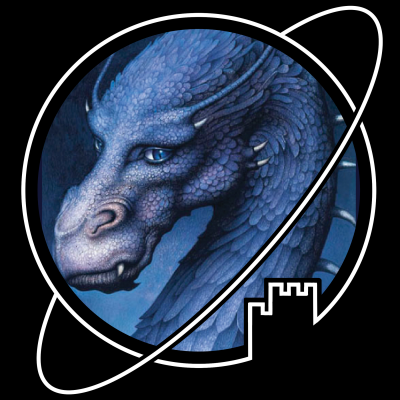

Ok so I know Christopher Paolini was like 15 when he wrote Eragon, but that doesn’t mean it has to be bad. Unfortunately it is. I truly have rarely felt rage the way I felt it while reading this book. It reads like it hasn’t been edited. It reads as if no one bothered to point out many awkward sentences that really have no business being in a final draft. Not to mention the bland characters and cookie-cutter fantasy plot.
I’m sure the sequels must be much better but I really wasn’t interested after having fought my way through Eragon. I suppose it was well written for a 15 year old? I just don’t get why it is so famous.
I would like to stress that when a book that has been published is this bad, it is much more the fault of the publisher than it is the fault of the author, especially in the case of a book written by a literal child. It is the publisher’s responsibility that a work that they put their name on be well edited, and that an author (especially a young author and/or first-time author) gets the guidance they need to edit their book. Writing a novel is a huge undertaking and to put the blame for a bad book on the author alone would be both naive and disrespectful to the work they undoubtedly put into it.
Also the cover art for these books fills me with rage. How could you draw such an ugly dragon?

I (relatively) recently reread Eragon, because I started the Inheritance Cycle way back when I was in middle school, and never finished it – I think I may have finished Brisingr, but never started Inheritance – and I was curious how the whole thing would end.
When I first read Eragon as a ten year old kid coming fresh off watching (and reading) The Lord of the Rings, I liked it as a cool adventure story with cool dragons, a cool mentor-character, cool enemies, a mysterious-sounding prophecy and a cool big battle at the end. It worked for me then.
Rereading it now, after having read a lot more in the genre (and generally having grown up somewhat), I am a lot more critical. Eragon is not exactly poorly written, but it follows the established tropes of the fantasy genre so closely – the chosen youth with the mysterious parentage, the old mentor figure with an equally mysterious past, the evil empire with an ancient emperor, undead lieutenants and a horde of baby slaying not-orcs, the woodland elves, the mountain dwarves, the elven maiden love interest – that it becomes rather predictable to the more seasoned reader. Paolini seems to have come up with rather little worldbuilding himself – he has a functional fantasy world, but his relatively hard magic system is the only element that deviates slightly from the trope-ical medieval fantasy setting.
Thinking back, the element I liked most was the bonding story between Eragon and his dragon (though really, a little conflict between the two might have spiced that up). Beyond that and the accessibility to younger readers, there are few compelling reasons to read Eragon over the plethora of other fantasy books out there.
Having said that, I wish I could recommend Eragon to younger readers because I feel that it worked well for me when I was their age, but having finished the series, I find that difficult. It feels like the mystery of the prophecy was wasted in the later installments, very little worldbuilding of interest was added, and the ending of the fourth part was flat-out disappointing.
Overall, whilst Eragon, the first book in the series, is a decent introduction to the genre (if entirely unoriginal), the other three parts do not make for a satisfying read, especially for more veteran readers. It is therefore perhaps a bit of a pity that Eragon has become somewhat of a modern classic of the genre.
Tagged:
- Book written by Ransom Riggs
- Published in 2011
- Part 1 of Miss Peregrine's Peculiar Children
Using spooky vintage photographs, Ransom Riggs tells the story of a teenage boy, Jacob, who travels to a small island off the coast of Wales to learn about his grandfather’s childhood. Here, he finds the ruins of an orphanage, Miss Peregrine’s home for Peculiar Children. Who were the children who lived in the home? What was so peculiar about them? And why were they hidden away on the island?
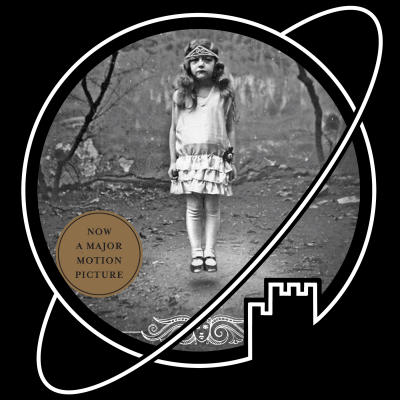

This book series has a wonderful premise and especially the first half of the first book truly delivers. However, as with any mystery book, eventually some of the mystery is gone. Riggs still manages to tell a compelling story with interesting characters and a setting that is pretty haunting, but it doesn’t quite live up to the eerie cover.
I still thoroughly enjoyed these books and would recommend them to both young and older readers. It’s not typical fantasy but blends elements of (mild) horror and urban fantasy in a way that works rather well.
See also:
Tagged:
- Book written by Robin Hobb
- Published in 2011
- Part 3 of The Rain Wild Chronicles
In part three of The Rain Wild Chronicles, the Dragons, their keepers, and the rest of the crew of the Tarman have finally found the legendary city of Kelsingra. Captain Leftrin has returned to the city of Cassarick to collect their rewards. Meanwhile, Elderlings Malta and Reyn Khuprus are expecting a child, but Cassarick isn’t as safe for those with scales as it once was.
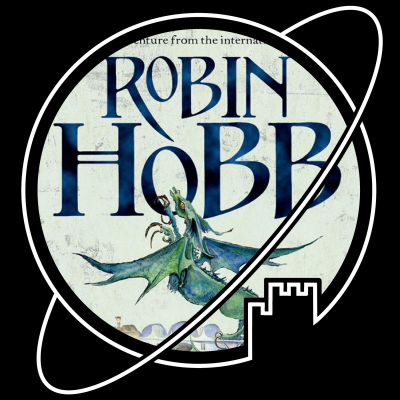

After two installments where little of note happens, I was glad to see that City of Dragons brings back both some plot as well as beloved characters from the Liveship Traders trilogy.
I found this book significantly easier to get through, and I listened to the audiobook, so that’s saying something (not sure what though, perhaps just how much of a drag Dragon Haven was, or else that I’m glad that this book was much shorter).
Malta is one of my favourite Robin Hobb characters of all time, so I was absolutely delighted to see her return to star in this book.
This book features significantly less of the dragons, as the story is spread out over more characters, both because the characters are in different places, but also because Hobb brings back characters from previous books (in particular Malta and Reyn, and Alise’s husband Hest). It also means we spend less time with individual characters, which was quite a relief after the last book, which at times felt more like a reality TV show than a novel.
Tagged:

Review: Eldest – Christopher Paolini
Part two of the Inheritance Cycle – After the battle of Farthen Dur, the dragonrider Eragon must go to the elves in Ellesmera to continue his training. Meanwhile, the Varden rebels prepare for all-out war.
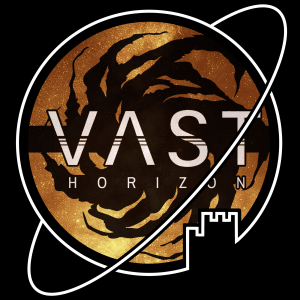
Review: VAST Horizon – Fool & Scholar Productions
The Bifrost was meant to transport its passengers to a yet-to-be colonised solar system, but when Dr. Nolira Eck wakes up from stasis, the ship’s systems are malfunctioning and the rest of the crew has disappeared. Assisted by the ship’s AI, Nolira fights to survive and to find out what fate has befallen her crewmembers.
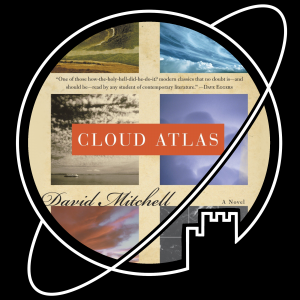
Review: Cloud Atlas – David Mitchell
Cloud Atlas is a collection of six intertwined short stories spanning across different times, settings, genres and styles, sharing themes and references, forming a single tale told through six beginnings and six ends.
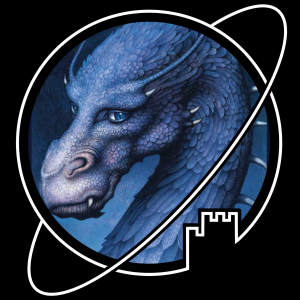
Review: Eragon – Christopher Paolini
Book one of the Inheritance Cycle – when Eragon finds a mysterious stone in the forest, he initially takes it home to sell. However, he realises that it is in fact a dragon egg – and Eragon is thrust into a dangerous adventure.
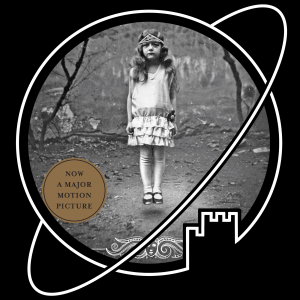
Review: Miss Peregrine’s Home for Peculiar Children – Ransom Riggs
Book 1 of Miss Peregrine’s Peculiar Children – In this spooky urban fairytale told with the use of peculiar vintage photographs, a young boy travels to Wales to discover his family history.
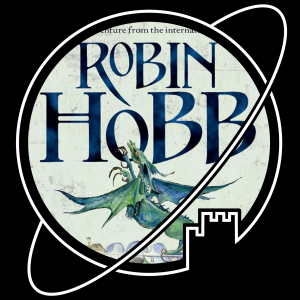
Review: City of Dragons – Robin Hobb
Book 3 of The Rain Wild Chronicles – The legendary city of Kelsingra has been found, and captain Leftrin has returned to the Rain wilds to claim their reward. Meanwhile, Malta and Reyn Khuprus are expecting a child…









